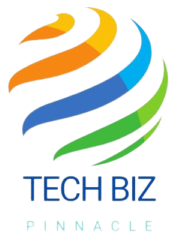While these tools offer convenience, imperative for students to cultivate AI Content Writers their own writing rather than depend on automated solutions. As educators, our mission is to help students master the art of writing, ensuring they actively engage with their work and develop their critical thinking skills. Here are five vital strategies to guide students away from over- reliance on AI content generators and towards enhancing their own writing prowess.
1. Highlight the Importance of Unique Perspectives
A fundamental aspect of writing is the development of unique and personal insights. Stress to students that writing is not just about presenting information but about sharing their individual viewpoints and thoughts. Encourage them to delve deeply into their topics, formulating their own arguments and perspectives. Use real-world examples to demonstrate how original thinking can lead to groundbreaking ideas and solutions. By emphasizing the value of personal contribution and creative thinking, students will better appreciate the significance of producing their own content instead of defaulting to AI-generated text.
2. Strengthen Research Skills
Effective writing starts with comprehensive research. Provide students with the tools and techniques necessary to perform thorough and effective research. Teach them how to locate, assess, and integrate information from credible sources such as academic journals, reputable databases, and original research materials. Encourage them to take detailed notes and organize their findings methodically before starting their writing. By underscoring the importance of detailed research, students will come to understand that high-quality writing is built on solid, well-researched content. This approach will also help them develop critical thinking skills, reducing their tendency to rely on AI-generated content.
3. Encourage Consistent Writing Practice
Writing proficiency improves with consistent practice. Offer students diverse writing assignments across various formats and genres, including essays, research papers, creative writing, and personal reflections. Provide constructive feedback to help them enhance their writing skills and find their unique voice. Regular writing practice not only boosts their confidence but also deepens their understanding of language, grammar, and stylistic elements. As students become more adept at expressing their ideas, they will be less inclined to depend on AI content generators and more likely to produce original and engaging work.
4. Educate About the Limitations of AI Tools
It’s crucial for students to understand the limitations and potential biases associated with AI content generators. Explain how these tools function by analyzing algorithms and pre-existing data, which can sometimes lead to errors or lack of originality. Teach students to use AI tools judiciously—for example, for generating ideas or checking grammar—but stress that these tools should not replace their own critical analysis and creativity. AI detectors and similar tools that can identify AI-generated content and encourage a critical approach to verifying sources. By comprehending these limitations, students will be more inclined to rely on their own skills and judgment rather than AI solutions.
5. Promote Peer Review and Collaborative Writing
Peer review and collaborative writing can be incredibly effective in developing writing skills. Encourage students to exchange drafts with peers and provide thoughtful, constructive feedback. This collaborative process not only helps them refine their writing but also fosters a sense of community and shared learning. Through peer reviews, students can experience different writing styles and approaches, which can inspire them to refine their own unique voice.
Conclusion
Guiding students away from excessive reliance on AI content generators is crucial for their growth as independent and skilled writers. By focusing on the importance of original thought, reinforcing robust research techniques, encouraging regular writing practice, educating them about AI tool limitations, and fostering peer review and collaboration, educators can significantly enhance writing capabilities.

